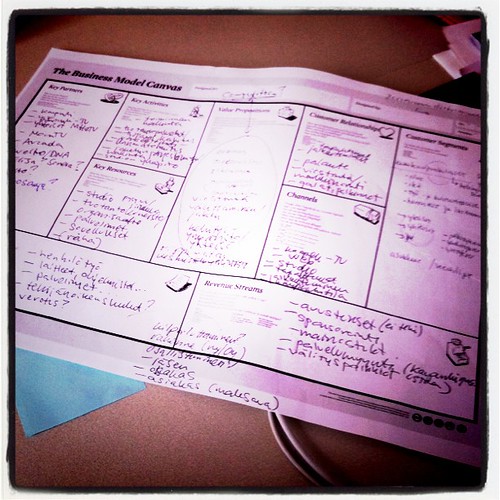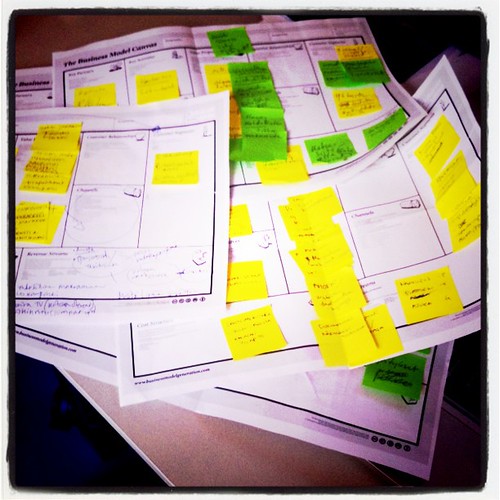Watch Top Gun. And you understand how it feels to run a startup. I really loved this analogue by Steve Blank during his lecture today.
Think how the fighter pilot operates in the cockpit: OODA loop. OODA stands for Observe, Orient, Decide and Act. This concept is basically a strategic level mindset in military operations, and can easily be applied to understand startup leadership. It is a rather complex system of decision making and imagine you have to do all those decision while flying mach 2.1, and you have only split seconds to react. That's how it feels.

The quest for a business model
In a scalable startup (for more on different type of startups here), the founding team is in a search for a repeatable and scalable business model. That is very different from actual execution in a company. The main difference with startups and corporations are that, in the latter one, the executive management already knows the business model because it has already been found. The startup phase should be temporary during the project's transformation into a company, and the sole purpose should be to understand the metrix needed to make reliable decisions.
Unlike in a corporation, the only accounting needed in a startup are a) burnrate and b) how much is left at the bank. Nothing else. Profitability or such do not matter until the startup team has verified the business model. When the model is verified, the company will actually deliver a valid value proposition for the their customer segments.

Do the customer development
Please, do not waste time on business plans. No business plan will ever stand the test of an initial customer encounter. This is often the first fatal flaw. The second flaw is to think all the imaginable features should be in the product. Learn to go lean and have just minimal viable feature set to test your assumptions. If your assumptions are correct, you should have no problems to add revenue to pay for the future development. If not, it is time to go back to the drawing board and tweak the model a bit.
Steve Blank thinks that many startups fail because they found no customers. Not because they could not deliver what the technical feature set failed. The startups just ended up building "a house where nobody wanted to live". So like the fighter pilots in "Top Gun", the startup founders have to move fast with limited resources. They have to do decision calls with limited amount of data. Essentially the thrills come through those decisions made blindly, with gut feelings. Just remember, your gut feeling will only emerge by talking to the customers and developing from there.
Most importantly, remember to find and document "what have we learned about customers and what is our story". That is what makes headlines.

No comments:
Post a Comment